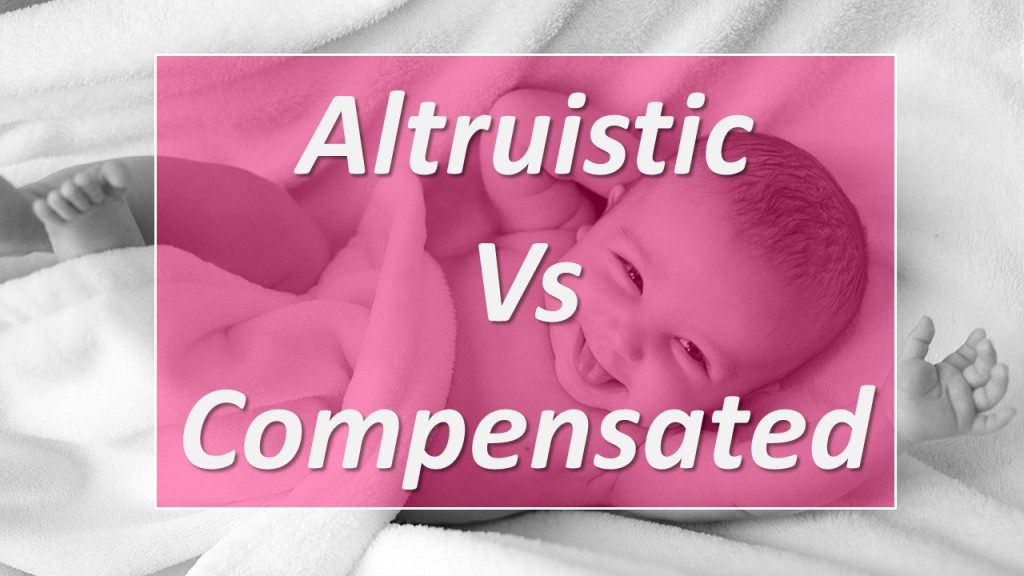Traditional or gestational surrogacy
There are two types of surrogacy according to the genetic relationship of the pregnant mother with the child: traditional (or partial) surrogacy and gestational (or full) surrogacy. In traditional surrogacy, the pregnant mother contributes her eggs and, therefore, has a direct genetic relationship with the child. Fertilization can be carried out naturally or, as is more usual today, by artificial insemination.
In gestational surrogacy, the pregnant mother has no direct genetic relationship with the child. In this case, in vitro fertilization with third-party eggs and sperm are used. Sperm is normally provided by the intended father while eggs are provided by the intended mother or a donor.
Currently, gestational surrogacy is more common in commercial agreements since it presents a lower risk that the surrogate mother can obtain the legal affiliation of the child in case of a dispute.

Commercial or altruistic surrogacy
It is common to distinguish cases of surrogacy according to the presence of economic motivation. It is known as commercial surrogacy that in which the pregnant mother participates for economic consideration, while it is known as altruistic surrogacy that is done altruistically
In practice, in altruistic surrogacy, the mother receives financial compensation, although restricted to certain concepts such as compensation for physical discomfort, medical expenses, or income not received due to not being able to work for a period.
According to the trends in favor of the practice, what is reasonable depends on a balance that prevents commodification, that prevents the use of surrogacy to avoid the discomfort of pregnancy and other types of trivialization, and on the other compensates for time, inconvenience, the risks, and discomforts associated with pregnancy, childbirth, and the puerperium.

For regulators, compensation is consistent with the recognition that compensation for donating gametes is ethical. It is also consistent with compensation for other situations, such as participation in medical research in which children Individuals are compensated for the time activities, stress, physical effort that they demand, and the risk involved in the studies in healthy volunteers. For them, compensation must be proportional to the time invested and based on the duration of examinations and previous evaluation of the pregnant woman, number of cycles until gestation is achieved, the duration of pregnancy and the puerperium, risks for employment, burdens on other members of the family, associated medical or surgical complications, etc.
Known or unknown surrogacy
In some cases, surrogacy agreements are made within the family itself. This raises some additional medical and ethical problems, especially in those cases where the resulting genetic relationship is equivalent to that of first-degree incest or consanguinity relationships. Even if there is no money involved, there may be coercion or moral pressure on the pregnant mother, especially in the case of daughters and sisters.
It’s important you check with a surrogacy lawyer before embarking in this journey. You can check this surrogacy directory





















You must be logged in to post a comment.